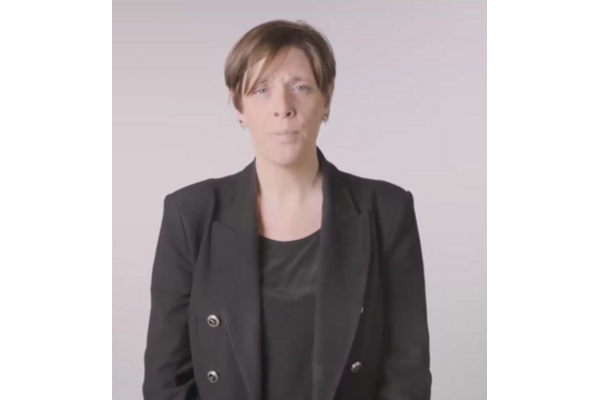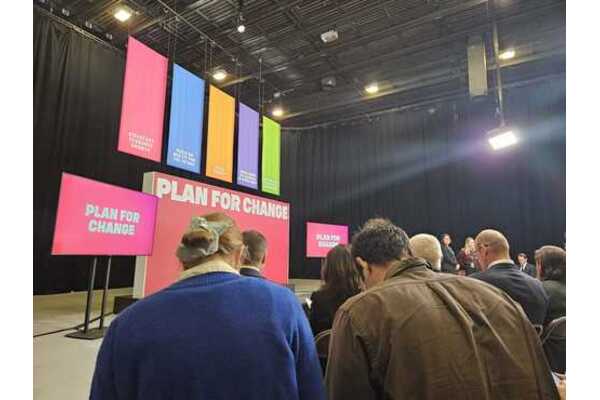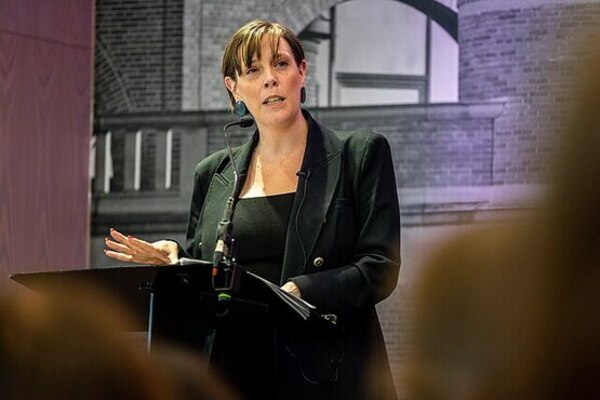Respect has written to Lord Bellamy, Parliamentary Under Secretary of State at the Ministry of Justice, highlighting the charity's concerns about the removal of the Domestic Abuse Perpetrator Programme referral pathway in Child Arrangement Order proceedings in the private family courts. The letter has been signed by 33 key voices from across the domestic abuse sector.
15 July 2022
Dear Lord Bellamy,
Re: Decommissioning of Domestic Abuse Perpetrator Programmes from CAO Proceedings
Congratulations on your appointment to the role of Parliamentary Under Secretary of State for the Ministry of Justice; we had the pleasure of hearing you speak when we attended the launch of Women’s Aid’s report Two Years Too Long: Mapping Action on the Harm Panel’s Findings last month.
As you know, it is now two years since the Ministry of Justice (MOJ) first published Assessing Risk of Harm to Children and Parents in Private Law Children Cases. We welcome the changes you outlined in your message to attendees of last month’s event, but also wish to draw your attention to the removal of Domestic Abuse Perpetrator Programmes (DAPPs) in Child Arrangement Order proceedings without a safe, quality-assured or viable alternative having been put in place.
The Government’s Implementation Plan, published alongside the Harm Panel report in June 2020, set out their commitment to convene a DAPP Review Steering Group to review and address the range of concerns set out in the report, including when DAPP attendance is and should be ordered, and how timely access to them may be improved. In April 2022, however, Cafcass England and MOJ announced that from 30 June 2022, DAPPs would no longer be commissioned by Cafcass England and that no alternative provision would be in place until 2024/5.
Respect is deeply concerned about the impact of the current gap in provision on adult and child survivors of domestic abuse in the family court arena; DAPPs played a crucial role in helping courts to understand and assess whether an abusive parent is capable of making, and sustaining, changes to their behaviour so that children can be appropriately safeguarded. They also provided support and advocacy for resident parents, ongoing risk management, and a means by which new risks can be identified and communicated to the court.
The guidance issued by the President of the Family Division in April 2022 suggested that expansion of direct supervised contact arrangements and the Improving Child and Family Arrangements Service (run by CAFCASS) could fill this gap, about which we have significant concerns. In the meantime, and in the absence of agreed and regulated pathways, parents in need of DAPPs are now being advised to self-refer to services, opening the door to widespread use of unsafe and/or unregulated interventions.
The Respect Standard, that was agreed with Cafcass England when the DAPP Pathways were established, clearly states that DAPP providers will not accept self-referrals onto their programmes for families who are in court proceedings – this is to avoid a situation in which those services are asked to provide reports and interventions without proper funding or the requisite feedback and reporting mechanisms to make the work safe, viable and in the best interests of the child/ren whose needs are of course paramount.
Respect is concerned that this decision was made without sufficient consultation; the DAPP Review Steering Group was convened in August 2021 but has not met since December 2021, and we do not believe that other key stakeholders such as the Family Law Bar Association or Resolution were consulted about the potential impact of this gap in service provision. We also have concerns that an Equality Impact Assessment was not undertaken to determine the impact of this decision on voluntary sector service providers, relative to the National Probation Service.
Throughout May and June 2022, Respect has been working closely with the MOJ to explore potential solutions to the difficulties that this decision has generated, but to date no such solution has been identified or implemented.
We would greatly appreciate your attention to this matter, and some indication as to what interim provision may be possible and in what timeframe. We would also welcome a meeting with yourself and senior officials to resolve the very serious risks to survivors and children. Finally, we seek clarity around the proposed options for a new commissioning framework.
Yours sincerely,
Jo Todd, Chief Executive, Respect
Ciara Bergman, Head of Perpetrator Services, Respect
Farah Nazeer, CEO, Women's Aid Federation of England
Suky Bhaker, CEO, Suzy Lamplugh Trust
Andrea Kilvington, CEO, Standing Together
Shelly Eades-Jones, Children's Service Manager, Barnardo's
Estelle du Boulay, Director, Rights of Women
Sue Burke, CEO, MKACT Domestic Abuse Services
Michelle Hill, CEO, TLC: Talk, Listen, Change
Lora Draper, CEO, The Change Project
Sarah Dangar, CEO, Ahimsa
Shigufta Khan, CEO, The Wish Centre
Ayla Nasuh, Co-Founder, Merseyside Domestic Violence Service
Donna Hodge, Director, Family Intervention Counselling Service
Melanie Dunn, Director of Support and Wellbeing, Glow
Catarina Sousa, Area manager, DVIP - Domestic Violence Intervention Project
Leandros Lazari, Board Trustee, The Change Project
Jane Frame, Board Trustee, The Change Project
Ian Parkins, Board Trustee, The Change Project
David C Van Sertima, Board Trustee, The Change Project
Nushra Mansuri, Assistant Professor in Social Work, Coventry University
Dr Adrienne Barnett, Senior Lecturer in Law, Brunel University London
Natalie Page, Director, Survivor Family Network CIC
Professor Marianne Hester OBE FAcSS, Chair in Gender, Violence & International Policy, University of Bristol
Gabrielle Trimblett, Safe & Together Implementation Lead, Respect UK
Dr Elizabeth Dalgarno Chair, SHERA Research Group
Dr Emma Katz, Senior Lecturer in Childhood and Youth, Liverpool Hope University
Sharon Walker, Service Manager, Make a Change DAPP, Freeva Jenkins centre
Carla Morris, Young Peoples Service, Respect
Davina James-Hanman, Independent Chair of Respect Accreditation Panel
Rebecca Vagi, National Lead, Make a Change
Carla James MSc, SHERA Research Group
Sara Miles, Criminal Justice Policy & Research Manager, Hertfordshire OPCC
Justine Dodds, Young People's Service Practice Development Lead, Respect
Liz Ostrowski, Domestic Abuse Trainer and Consultant, Freelance









